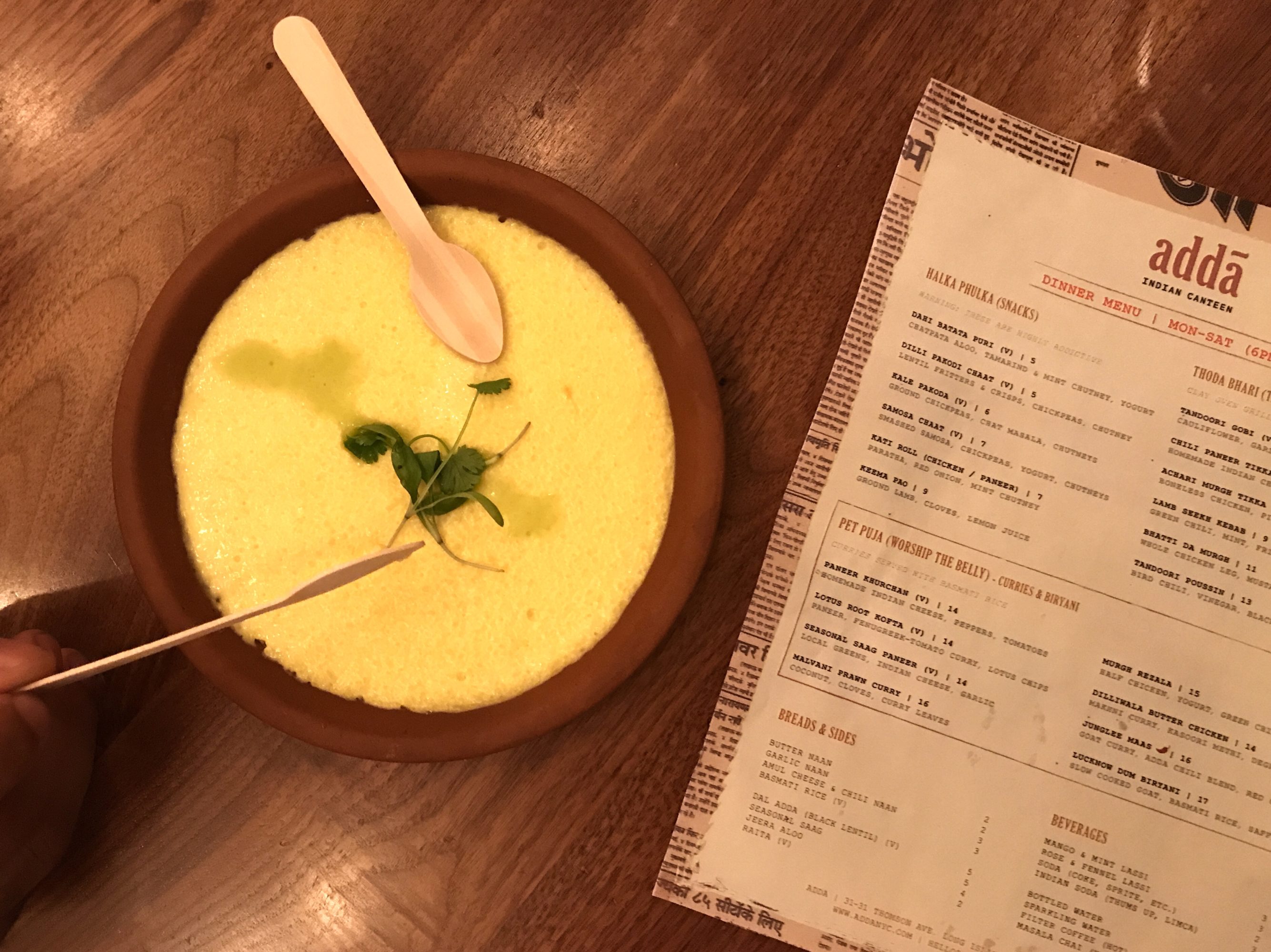Simplicity by Design at New York City’s Adda

Ally Spier
Skift Take
With his newest restaurant, NYC-based Roni Mazumdar envisions a space that welcomes the local community through its menu and design alike.
New York City-based restaurateur Roni Mazumdar sees potential where others may not. His newest venture, Adda, in Queens’ Long Island City neighborhood, is characterized by this kind of optimism, both inside and out.
Situated between Queens Boulevard and heavily trafficked Thomson Street, and flanked by an empty storefront and a 7-Eleven, Adda’s location may initially feel like an odd choice, but it’s very intentional. For one thing, it replaced Unico Global Tacos, a somewhat short-lived, earlier endeavor by Mazumdar and chef Suvir Saran that offered a globally-inspired menu. But Unico, and now Adda, address aims to “get people to see a little bit of life in this semi-barren zone”, says Mazumdar. Wanting to be a changemaker, rather than one who piggybacks on others’ efforts, Mazumdar hopes to appeal to the population of the largely as-yet-undeveloped neighborhood, whose quality food options are currently, severely lacking.


